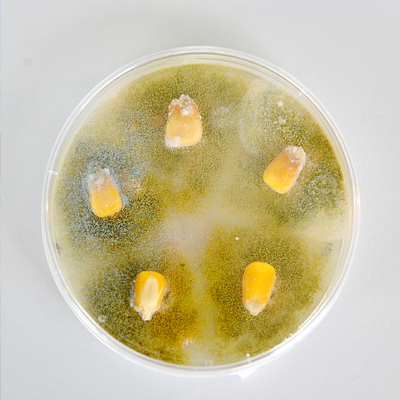A new research centre focused on harnessing the positive powers of fungi is being established at Cranfield University with a £7.2 million injection of funding from Research England.
Fungi are one of the most diverse kingdoms in all living organisms and have an estimated global monetary value of 54.57 trillion US dollars. Long used for food and medicine, only a small proportion of classified fungi species has been studied in detail and developed for industrial use – leaving an estimated three million species yet to be discovered and evaluated. To date, research of fungi has largely focused on mitigating negative effects like disease, toxins and food loss.
The new research centre at Cranfield, the Magan Centre for Applied Mycology, will examine the positive role fungi-derived technologies and applications could have in supporting the green economy and global net zero ambitions.
‘Untapped Kingdom’ with transformative potential
With over 35 years of research expertise in fungi, particularly in food storage and safety, Cranfield will extend its work into other areas where fungi could have a profound impact. This will involve interdisciplinary research into applications such as renewable energy, biofuels, construction materials, packaging, robotic parts and fuel cells.
“Fungi is an untapped kingdom with the potential to transform our world,” said Professor Angel Medina-Vaya, Director of Environment and Agrifood at Cranfield University and Principal Investigator of the project.
“It’s not exaggerating to say that fungi can have a truly pivotal role in helping us reach global net zero ambitions. Imagine creating self-healing electrical components, fuelling an aircraft with fungi-derived biofuel, or building a house with fungal insulation. All of these and more are possible – and this new and unique research centre will pioneer many of these new applications and technologies.”
Global collaborations will create centre of excellence
Cranfield will be collaborating with organisations around the world that hold large collections of fungi to advance the research, including the Royal Botanic Gardens Kew in the UK, the Westerdijk Fungal Biodiversity Institute in the Netherlands, the Forestry and Agricultural Biotechnology Institute in South Africa.
The new funding is boosted by a contribution from the University to create a £10 million centre of excellence. It will support five academic posts, five post doctorate roles and several technical staff, as well as upgrading Cranfield’s specialist lab facilities.
Professor Leon A. Terry, Pro-Vice-Chancellor for Research and Innovation at Cranfield University welcomed the new investment: “The interdisciplinary nature of this new research centre along with Cranfield’s world-renowned and long-standing expertise in mycology makes this a really exciting prospect. We look forward to working with partners and industry to develop some of the most novel and innovative technologies in this space.”
Dr Steven Hill, Director of Research at Research England, said: “We have invested in research units in universities right across England. This will diversify the regional spread of research disciplines to support the sustained enhancement of research capacity across England, and enhance the skills base, build and diversify talent and bring disciplines together to develop new skillsets and "future leaders” in areas of research excellence where there is untapped potential.
“Our investment will also help to reinforce the contribution of HEPs to their region through strategic local partnerships, focusing on sharing resources and infrastructure and generating local impact, backed by robust institutional leadership. We’re excited to see how these units develop over the next five years.”
The new centre is named after Professor Naresh Magan, who died in April 2023. Naresh was a globally-renowned expert in the field of applied mycology and established the Applied Mycology research group at Cranfield, working at the university for 37 years.
Cranfield is the only Higher Education Provider to have been part of two different and successful Expanding Excellence in England awards in this funding round from Research England. Cranfield academics are also set to collaborate on a new £13.5 million Future Biodetection Technologies Research Hub, led by the University of Hertfordshire, in collaboration with Cranfield, Leeds and Manchester universities.






